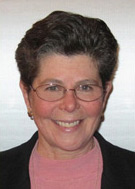Club News & Articles
Our News Items

Rotary Inclusion Team Book Review
July 1, 2021
As a member of the Equity and Inclusion Task Force, I am always looking for reasons and explanations (and especially solutions) for our country's on-going ills; the decline of inclusiveness, our deteriorating economic competitiveness, the state of our environment, our rights and freedoms, etc. For pretty much the whole of my adult life, I have voted for the "lesser-of-two evils" and have voiced my impression to anyone who cared, that if you are a ‘good' politician (in my humble opinion), you are not a politician for long. So, when Carolyn McClanahan** invited me to another of her book club sessions, one that promised to introduce us to an "achievable and powerful" theory as to how political innovation could break our partisan gridlock, and actually serve us, the general public, I jumped at the chance to attend and to learn how we might be able to change our country's direction. (**Some of you will remember our October 2020 speaker, Carolyn, and her subject "The Continuing Soap Opera of Health Care Reform".)
Although not as entertaining and fun as the various movie ideas Mary shared with us in last month's Windmill, I cannot more highly encourage you all to at least become familiar with the political innovation theory introduced and explained in this book. If your time is short, and your reading list is long, I have included links to a Ted Talk by Katherine Gehl, and a couple of articles written by the authors, subsequent to March 2020, when the book was published. Each gives a short introduction to the authors' theory, and their "powerful and achievable" proposal, for changing the rules of our current Politics Industry. Changes without which we cannot reverse our country's deteriorating economic competitiveness and quality-of-life recession, as made clear in Gehl and Porter's Table 3-1, showing an excerpt from a 2019 OECD report: The Eroding US Social Performance, Compared with Organisation for Economic Co-Operation and Development (OECD) Countries. Some of the eye-opening U.S. rankings (36th being last place) are in access to education- we rank 33rd in access to quality education, 22nd in secondary school enrollment (on par with Serbia!), in health, 35th and 33rd in maternal and child mortality rates, respectively, personal safety, 35th in homicide rates and 26th in discrimination and violence against minorities, and the list goes on!
The authors propose a solution to change the current structure of our politics industry, which has created unhealthy competition, serving only the interests of the duopoly (our two major parties), the related special interest groups, lobbyists, big money donors, super PACS, think tanks, pollsters, consultants, and the media, at the expense of the public interest.
The key methodology applied by the authors is the Five Forces framework, and may be familiar to some of you in industry. It was originally developed four decades ago to understand industry structure and its effect on the nature of competition in for-profit industries. Because it took me some re-reading to clarify, I am including the definition of Final Five Voting (FFV) here. FFV includes two, indivisible, changes to the rules of our current politics industry game.
1. No party primaries. The current structure of our primaries, must be changed to be open, single ballot, and non-partisan, where the top five candidates qualify for inclusion in the general election.
2. In the general election, we will rank our 1st - 5th choices - Rank Choice Voting (RCV). The winner must receive a majority of votes, not just a plurality. If no one candidate wins by a majority, in an instant run-off (using RCV): the last place candidates votes will be given to the voter's second choice candidate, and so on, until one candidate has a majority of the country's votes.
The intent of these changes is not focused on the individual politicians on either side of the duopoly, nor is the intent to dissolve the Democratic and Republican parties. These changes are designed to change the perverted rules of the Politics Industry game so that those elected serve us, the citizens, the public interest, and not the political-industrial-complex. As Katherine makes clear in her TED Talk and the book-Washington politics "is not broken, it's fixed."
In the darkest chapter of the book, which I struggled to get through, Gehl and Porter have outlined the ‘Consequences of our Democracy in Decline', pretty dramatically:
Lack of Problem Solving
There is no intersection between elected officials acting in the public interest and the likelihood of their being re-elected. We have seen declining bi-partisan support of landmark legislation, a disappearance of moderates in the House and Senate, skyrocketing Congressional gridlock on salient issues, and no action without a time sensitive crisis.
A country more divided.
Quoting former House Speaker Paul Ryan, describing a system and defining "identity politics" as "...playing on people's divisions and exploiting people's frustrations and divisions with other people-dividing people for political gain, not good, to get a coalition that's 50 (%) plus one."
Political disillusionment
Dwindling public trust in Government (1964-73% vs. 2018-17%!), an increasing number of Independents, and an increasing desire for a third party.
Lack of accountability
In any other industry this large-and thriving- with this much customer dissatisfaction and only two players, some entrepreneur would see it as a phenomenal business opportunity. However, in the later chapters, for those of you who immediately doubt (like I had) that these changes can ever come to be, the authors share with us how and when Political Innovation has worked in the past. And, where and how it is beginning to work today. Their Final Five Voting (FFV) concept is already beginning to change the unhealthy competition (in politics) that is not serving us, the ‘customer', in Alaska, California, and Maine. The Politics Industry theory focuses on the root cause of our current political disfunction; which endures across each election cycle and all administrations.
www.ted.com - (16:53 min)
www.hbr.org
www.cnn.com
Author: Kristin Reed
Windmill
Rotary Inclusion Team Book Review
July 1, 2021
As a member of the Equity and Inclusion Task Force, I am always looking for reasons and explanations (and especially solutions) for our country's on-going ills; the decline of inclusiveness, our deteriorating economic competitiveness, the state of our environment, our rights and freedoms, etc. For pretty much the whole of my adult life, I have voted for the "lesser-of-two evils" and have voiced my impression to anyone who cared, that if you are a ‘good' politician (in my humble opinion), you are not a politician for long. So, when Carolyn McClanahan** invited me to another of her book club sessions, one that promised to introduce us to an "achievable and powerful" theory as to how political innovation could break our partisan gridlock, and actually serve us, the general public, I jumped at the chance to attend and to learn how we might be able to change our country's direction. (**Some of you will remember our October 2020 speaker, Carolyn, and her subject "The Continuing Soap Opera of Health Care Reform".)
Although not as entertaining and fun as the various movie ideas Mary shared with us in last month's Windmill, I cannot more highly encourage you all to at least become familiar with the political innovation theory introduced and explained in this book. If your time is short, and your reading list is long, I have included links to a Ted Talk by Katherine Gehl, and a couple of articles written by the authors, subsequent to March 2020, when the book was published. Each gives a short introduction to the authors' theory, and their "powerful and achievable" proposal, for changing the rules of our current Politics Industry. Changes without which we cannot reverse our country's deteriorating economic competitiveness and quality-of-life recession, as made clear in Gehl and Porter's Table 3-1, showing an excerpt from a 2019 OECD report: The Eroding US Social Performance, Compared with Organisation for Economic Co-Operation and Development (OECD) Countries. Some of the eye-opening U.S. rankings (36th being last place) are in access to education- we rank 33rd in access to quality education, 22nd in secondary school enrollment (on par with Serbia!), in health, 35th and 33rd in maternal and child mortality rates, respectively, personal safety, 35th in homicide rates and 26th in discrimination and violence against minorities, and the list goes on!
The authors propose a solution to change the current structure of our politics industry, which has created unhealthy competition, serving only the interests of the duopoly (our two major parties), the related special interest groups, lobbyists, big money donors, super PACS, think tanks, pollsters, consultants, and the media, at the expense of the public interest.
The key methodology applied by the authors is the Five Forces framework, and may be familiar to some of you in industry. It was originally developed four decades ago to understand industry structure and its effect on the nature of competition in for-profit industries. Because it took me some re-reading to clarify, I am including the definition of Final Five Voting (FFV) here. FFV includes two, indivisible, changes to the rules of our current politics industry game.
1. No party primaries. The current structure of our primaries, must be changed to be open, single ballot, and non-partisan, where the top five candidates qualify for inclusion in the general election.
2. In the general election, we will rank our 1st - 5th choices - Rank Choice Voting (RCV). The winner must receive a majority of votes, not just a plurality. If no one candidate wins by a majority, in an instant run-off (using RCV): the last place candidates votes will be given to the voter's second choice candidate, and so on, until one candidate has a majority of the country's votes.
The intent of these changes is not focused on the individual politicians on either side of the duopoly, nor is the intent to dissolve the Democratic and Republican parties. These changes are designed to change the perverted rules of the Politics Industry game so that those elected serve us, the citizens, the public interest, and not the political-industrial-complex. As Katherine makes clear in her TED Talk and the book-Washington politics "is not broken, it's fixed."
In the darkest chapter of the book, which I struggled to get through, Gehl and Porter have outlined the ‘Consequences of our Democracy in Decline', pretty dramatically:
Lack of Problem Solving
There is no intersection between elected officials acting in the public interest and the likelihood of their being re-elected. We have seen declining bi-partisan support of landmark legislation, a disappearance of moderates in the House and Senate, skyrocketing Congressional gridlock on salient issues, and no action without a time sensitive crisis.
A country more divided.
Quoting former House Speaker Paul Ryan, describing a system and defining "identity politics" as "...playing on people's divisions and exploiting people's frustrations and divisions with other people-dividing people for political gain, not good, to get a coalition that's 50 (%) plus one."
Political disillusionment
Dwindling public trust in Government (1964-73% vs. 2018-17%!), an increasing number of Independents, and an increasing desire for a third party.
Lack of accountability
In any other industry this large-and thriving- with this much customer dissatisfaction and only two players, some entrepreneur would see it as a phenomenal business opportunity. However, in the later chapters, for those of you who immediately doubt (like I had) that these changes can ever come to be, the authors share with us how and when Political Innovation has worked in the past. And, where and how it is beginning to work today. Their Final Five Voting (FFV) concept is already beginning to change the unhealthy competition (in politics) that is not serving us, the ‘customer', in Alaska, California, and Maine. The Politics Industry theory focuses on the root cause of our current political disfunction; which endures across each election cycle and all administrations.
www.ted.com - (16:53 min)
www.hbr.org
www.cnn.com
Author: Kristin Reed
Windmill


